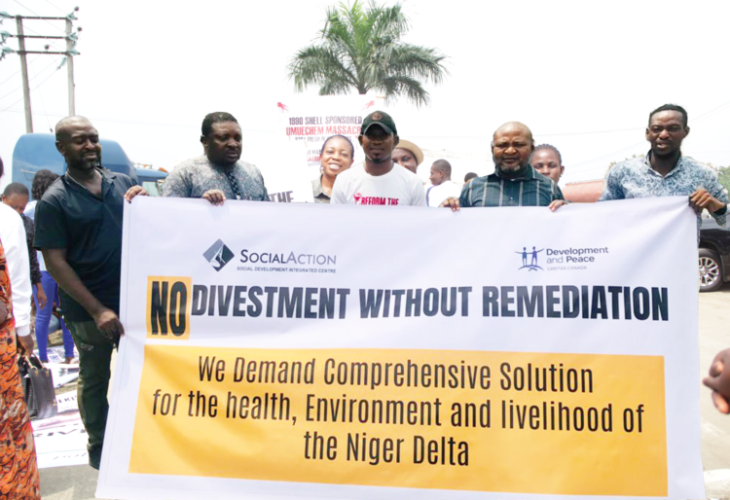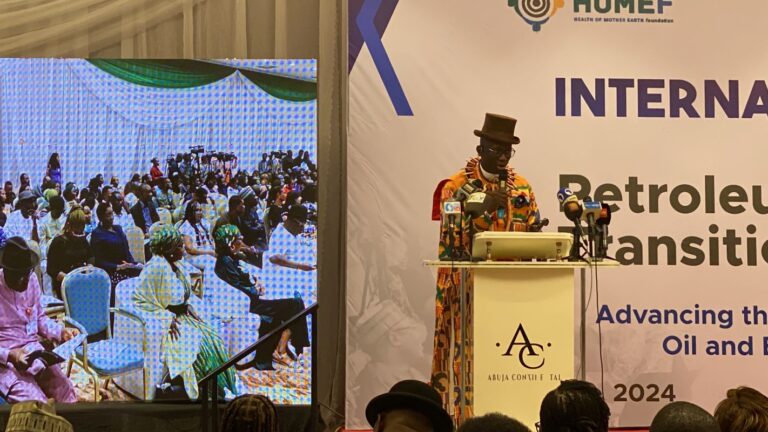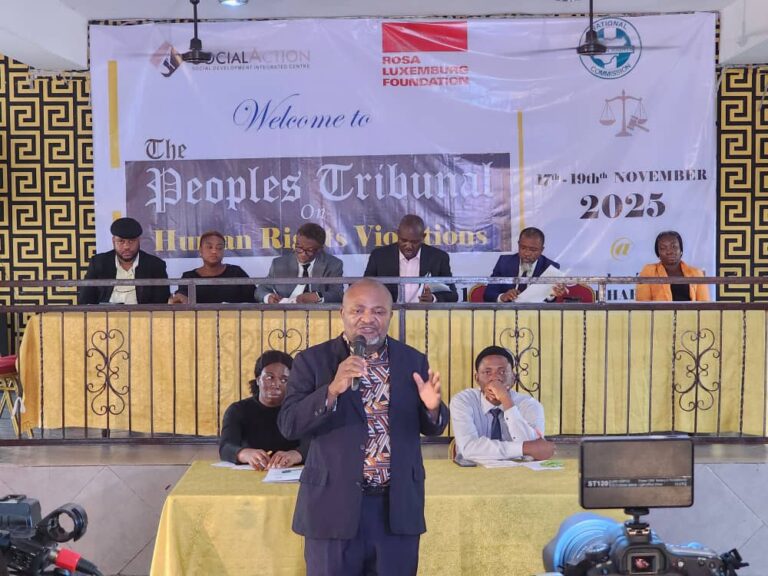Betrayal in the Delta: Nigerian Government Ignores Plight of Citizens as Shell Escapes Accountability
The Niger Delta, the lifeblood of Nigeria’s oil industry, pulsates with a toxic mix of despair and defiance. Decades of oil exploration by Shell have left an indelible scar – a ravaged environment and a people yearning for justice. Now, in a move that reeks of callous disregard, the Nigerian government appears poised to rubberstamp Shell’s $2.4 billion divestment to the Renaissance consortium, a group shrouded in opacity. This decision, a betrayal of the highest order, prioritizes short-term financial gain over the long-term well-being of the Delta and its inhabitants.
A Legacy of Devastation
For over 65 years, Shell has operated in the Niger Delta with impunity. Oil spills, gas flaring, and ecosystem destruction have become commonplace. Communities have been left grappling with polluted water sources, destroyed livelihoods, and a myriad of health problems. The cries of the people, amplified by environmental groups and local activists, have fallen on deaf ears. The contamination of water and land resources, vital for sustaining livelihoods dependent on fishing and farming, has led to the loss of means of living for these communities. Despite assurances from successive administrations, the interests of multinational corporations often take precedence over the well-being of local populations, perpetuating environmental degradation and social inequality in the region.
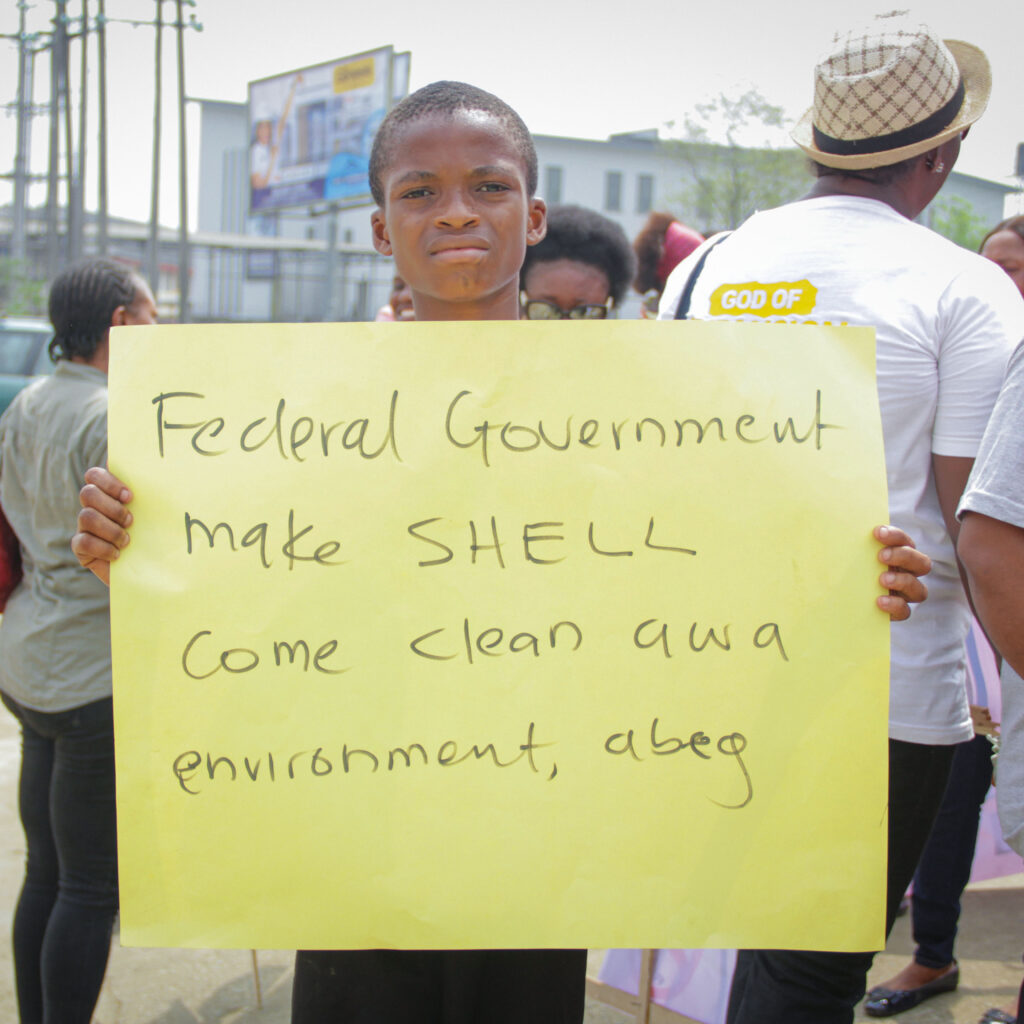
Crying out to the government to halt the divestment and to prevail on Shell to clean up the environment
A History of Empty Promises
Successive presidents of Nigeria have assumed the role of Minister of Petroleum and have pledged to prioritize the interests of their people. However, their actions have often contradicted these promises, displaying biases towards oil multinational corporations.
Despite our collective efforts, including lobbying for the passage of the Petroleum Industry Bill (PIB) into law, the final version of the PIB fails to adequately consider the interests of impoverished oil-bearing communities and the devastated environment. Billions of petrodollars generated from these regions have been diverted and stashed abroad, while communities continue to suffer without access to potable water and basic amenities.
Similarly, past Shell divestments, like the one in Nembe, Bayelsa State, have exposed the hollowness of their supposed commitment to environmental remediation. The transfer of assets often occurs with a shroud of secrecy, leaving communities with no recourse for ongoing pollution and unresolved grievances.
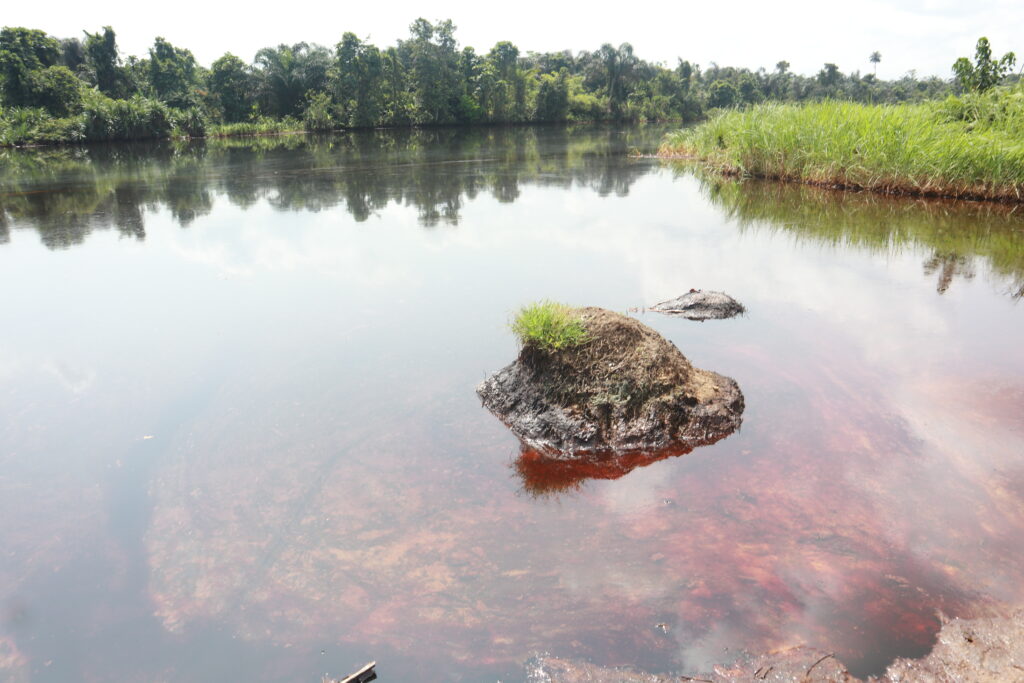
Rivers heavily polluted by crude oil in a community in Rivers State, Nigeria
A Government Blind to Its People’s Needs
Despite repeated calls from civil society, community leaders, and even international rights groups, the Nigerian government seems determined to expedite Shell’s divestment. This haste raises troubling questions. Are vested interests at play, trumping the needs of the people? Has the government chosen to prioritize a quick financial transaction over environmental safeguards and the future of the Delta?
This blind pursuit of profit ignores the environmental time bomb ticking in the Delta. The Renaissance consortium’s capacity to handle the environmental liabilities remains unclear. With Shell attempting to escape accountability, who will bear the brunt of future clean-up efforts?

President Bola Ahmed Tinubu
A Renewed Call to Action: Halt the Divestment and Demand Accountability
The proposed divestment must be halted until a comprehensive and transparent framework is established. This framework should prioritize:
- Environmental Remediation: A transparent plan outlining a comprehensive clean-up of polluted sites, funded by Shell and the Renaissance consortium.
- Community Compensation: Fair and equitable compensation for affected communities for the environmental damage and social disruption they have endured.
- Regulatory Strengthening: Robust regulatory oversight with stringent environmental and social standards, including independent audits and enforceable penalties for non-compliance.
- Community Engagement: Meaningful participation of affected communities throughout the process, ensuring their voices are heard and concerns addressed.
The Nigerian government has a moral and legal obligation to its citizens and the environment. Approving this divestment without these safeguards in place would be a monumental failure of leadership.
A United Front for a Sustainable Future
The fight for a just and sustainable future for the Niger Delta requires a united front. Civil society organizations, community leaders, environmental groups, and the international community must come together to pressure the Nigerian government to act responsibly. Public awareness campaigns, legal challenges, and international advocacy – all tools must be employed to force a change of course.
The Niger Delta deserves better. Its people deserve a clean environment, healthy communities, and a share in the wealth generated from their land. The fight for a just transition away from a destructive oil industry and towards a sustainable future for the Delta continues.

